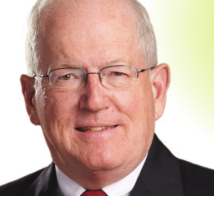A trip to the Croatian coastline and three different but excellent reads
The first two weeks of August, my wife and I were lucky enough to capture the lost trip we were scheduled to take 14 months ago, to Croatia and Montenegro, to visit with and sail the Adriatic Sea on the boat of our in-laws.
We took in the incredible beauty of the Croatian coastline, where mountains come down to the sea, and rocky beaches meet the clear blue waters. Crowds flocked to the towns and beaches, restaurants and attractions. The incredible wealth on view at marinas in Montenegro make them perhaps the most opulent in the entire Mediterranean.
But scratching beneath the surface, it is apparent that these beautiful surroundings were the location of a great civil war in the 1990s, known there as the
Yugoslavian War, when the Serbs attacked the Croatians, who were trying
to assert their independence, and the world community had to step in to
stop the carnage. Bullet holes still appear in walls, and reconstructed
ancient walled cities are a reminder of the inhumanity of the groups who
fought against each other.
But
the opportunity to visit such beautiful countries, now at peace, was a
great pleasure, notwithstanding the ominous news coming out of
Afghanistan and Haiti at the same time.
During the trip, several recent books came along.
The
first was “I Alone Can Fix It: Donald J. Trump’s Catastrophic Final
Year,” by Carol Leonnig and Philip Rucker, Washington Post
correspondents, and authors of “A Very Stable Genius,” the story of
Trump’s first three years in office.
One
of many coming out recounting the last year of the unique Trump
presidency, this book is perhaps the most researched. In it, no matter
how bad you think things were, you find out how much worse they were!
The disconnection from reality, ignorance of facts, lack of coherent
planning both in policy and politics, are astounding.
The authors contrast the erratic chief executive, whose entire focus is on his ratings and image, against a host
of officials trying to keep the government together. Unlikely heroes
emerge. Jared Kushner is portrayed as one who got the pandemic, asked
the right questions, and earned the respect of the medical and
scientific officials trying to develop a response to Covid-19, which the
President just hoped would go away. Defense Secretary Mark Esper and
Joint Chiefs Chairman Gen. Mark Milley are portrayed as holding forth
against the whims of Trump to keep defense policy sane, and, after the
election, make plans to protect the republic against possible threats to
the established processes of transition. Even Attorney General William
Barr, often portrayed as an apologist for Trump, comes across as
resisting the more bizarre of the President’s inclinations and
suggestions.
The
authors recount their interview with Trump at Mar-A-Lago, after which he
hosted them in the dining room, made sure they were taken care of well
in his hotel. He remarked after the interview for a book he knew would
not portray him favorably, according to the authors: “’I enjoyed it
actually,’ Trump said with a twinkle in his eye, ‘For some sick reason, I
enjoyed it.’” That may say more about the former president than all the
other analysis in this well-written account.
Next,
was John Grisham’s most recent novel, “Sooley.” Not the typical Grisham
lawyer story, this is about a young African basketball player, picked
for a team to come to America, compete, and, through a series of
fortunate events, be granted a scholarship to college here. Meanwhile,
back home, trouble was brewing.
Grisham
is a careful storyteller and telling more of the plot would ruin it,
other than to say the twists and turns, the thrills of victory and
heartache of tragedy, with an ultimate happy ending for some of the
characters, is a triumph of great writing. It is a surprise for this
non-sports fan to see a sports story weave the themes of world crisis,
immigration issues, sudden wealth and fame into such an impactful book.
For
total recreation, there’s “The President’s Daughter,” by William
Jefferson Clinton and James Patterson, the second collaboration between
the world’s most published author and the former president. Largely set
in New Hampshire, with some obvious mistaken references detected by
those who know the Granite State, this book is a thriller while
following the themes of politics, terrorism, family and drama. This one
is fun, engaging and worth the read.
Not bad for a summer vacation!
Brad Cook is a Manchester attorney. The views expressed in this column are his own. He can be reached at bradfordcook01@gmail.com.